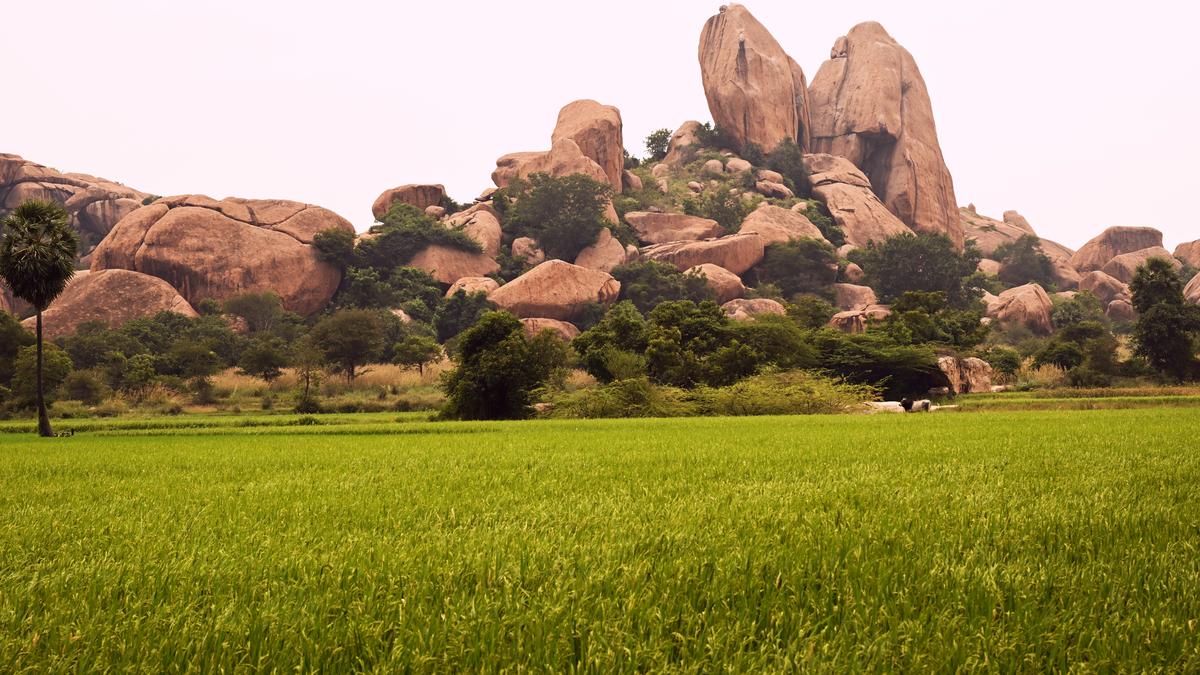
In Madurai, mining for tungsten and trouble Premium
The Hindu
Tungsten mining: There have been sustained protests in Tamil Nadu’s Madurai district since Centre granted rights to Hindustan Zinc, a Vedanta subsidiary; residents, particularly of Melur taluk, which has the Arittapatti biodiversity heritage site, worry about land, lives, and livelihoods
On the hot afternoon of December 29, more than 300 women at Kesampatti village in Melur taluk in Madurai district, stand in a circle. Most of them are daily wage labourers or farm workers and are of different ages. Clad in colourful sarees, the women clap their hands, sing, and dance in a synchronised fashion. This is kummi, a folk dance that is performed in parts of Tamil Nadu.
However, this is not a festival or religious event, when kummi is generally performed; it is a protest site at the entrance of the village. Through performance, the women are agitating against the Union government’s proposed extraction of tungsten, a rare element found in this region, which is critical for automobile and defence industries and green energy technologies. “Enga mala sami kavalkarana irunthu makkalayum nilathayum kappan (Our hill god being a protector will protect both our people and land),” goes their kummi song.
A. Kalpana, who has never participated in a protest, says, “Our art, religion, food, culture, and tradition are interlinked with this landscape. Without our land, we will become nothing.”
The kummi protest is part of the weekly agitations that have been organised by activists and the residents of panchayats in Melur taluk since November 7, 2024. The Ministry of Mines announced that it had granted tungsten mining rights in eight blocks, spanning 5,000 acres, through an auction, to Hindustan Zinc Limited, a subsidiary of Vedanta Limited, a listed company. The Melur region, proposed for mining, includes the villages of Arittapatti and Nayakkarpatti, which are rich in scheelite, a key source of tungsten, and are also home to several heritage sites.
On November 23, more than 20 panchayats of four panchayat unions in Madurai passed resolutions against the project. A few days later, Chief Minister M.K. Stalin urged the Modi government to cancel the award of tungsten mining rights in Madurai district and said that he would not allow it as the people were opposed to it. The Ministry, in turn, issued a statement saying “inputs were taken from the Government of Tamil Nadu before the block was put up for auction.”
C. Jeeva, a resident of Kesampatti and an organiser of the protest, says, “Though we have organised similar protests and rallies against granite quarrying in the Melur region in the past, we know that the struggle this time is against the Union Ministry and one of the biggest conglomerates in the world. It is going to be a tiring and prolonged battle, but we will persist.”
K. Selvaraj, 44, an environmental activist based in Kambur village near Melur taluk, is critical of the Ministry’s decision of naming the project after a hamlet of about 20 houses.













